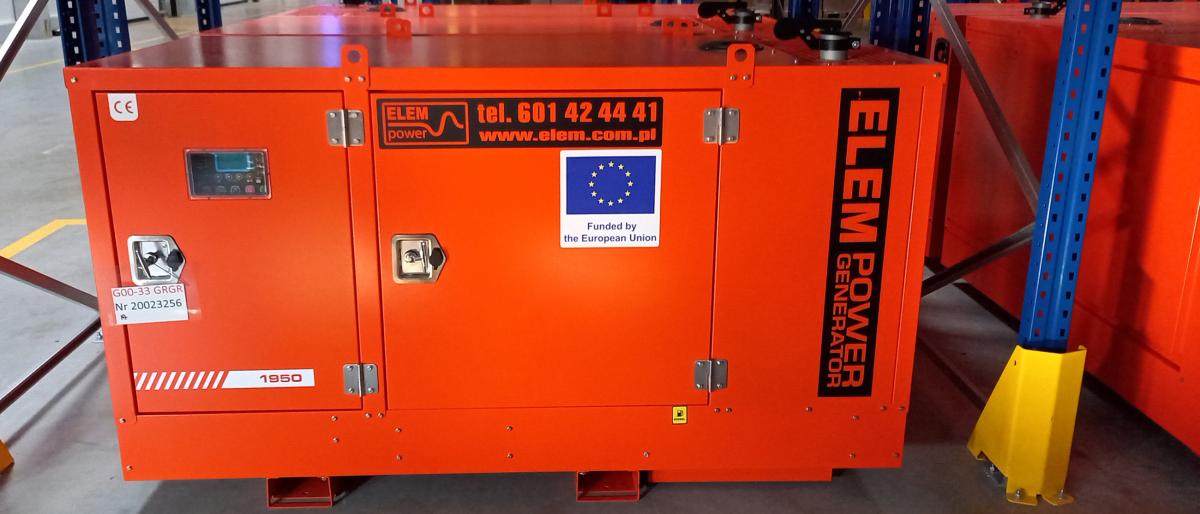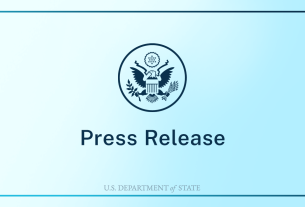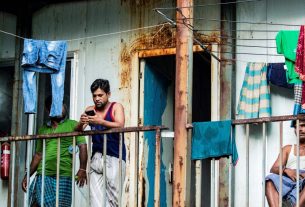The EU is mobilising a further 500 power generators from its strategic rescEU reserves to strengthen Ukraine’s energy resilience.
Continued brutal attacks by Russia have left Ukrainian energy infrastructure fragile. Despite the efforts by local authorities, it is impossible to restore all the destroyed power grids within a year.
Deployed from the EU’s emergency rescEU reserves hosted by Poland, the generators range from small 12.5 kVA to large 1,000 kVA and are capable of supplying energy to entire hospitals in case of power cuts.
The financial value of the 500 power generators being sent to Ukraine is €16.5 million. The generators will be provided to different Ukrainian ministries.
The goal is to ensure sufficient supply of electricity during cold and dark months, but also to keep vital services like hospitals, wastewater treatments and heating stations up and running. For example, 40 of the 500 generators are designated for schools.
Together with this new deployment, more than 5,500 power generators have been sent to Ukraine via the EU Civil Protection Mechanism, which includes offers from the Member States and 2178 from the EU’s own rescEU stockpiles that serve as an additional protection layer.
In addition to generators, the EU has been delivering other vital energy supplies to Ukraine like transformers, autotransformers, high-voltage equipment and LED light bulbs.
Commissioner for Crisis Management, Janez Lenarčič said: “Last winter we witnessed Russia’s attempts to bomb Ukraine into cold and darkness. They did not succeed then, and they will not succeed now. The resilience of the people of Ukraine is extraordinary, and they don’t stand alone. The EU has been working hand in hand with the Ukrainian authorities to channel the most needed emergency supplies to the country since day one. Now, we are mobilising additional 500 power generators from our rescEU energy reserves to support Ukraine’s energy system during harsh winter months.”
Background
Russia’s war against Ukraine has led the country to the brink of a humanitarian catastrophe. In response, the EU has mobilised all its available resources to provide emergency assistance to Ukraine.
The crisis response to the war in Ukraine is the largest, most complex and longest running operation ever conducted under the EU Civil Protection Mechanism.
All 27 EU countries, plus Norway, Türkiye, North Macedonia, Iceland, and Serbia, have offered in-kind assistance ranging from medical supplies and shelter items to vehicles and energy equipment. So far, more than 98,000 tonnes of assistance has been delivered to Ukraine via the Mechanism.
In addition, the EU has mobilised assistance from its rescEU medical, CBRN, shelter and energy stockpiles hosted by Belgium, Germany, Denmark, Greece, Hungary, the Netherlands, Poland, Romania, Sweden, Slovenia and from the rescEU private sector reserve hosted by Belgium and Poland.
The EU has also been coordinating medical evacuation flights transferring patients for treatment in European hospitals. More than 2,900 Ukrainian patients have been evacuated to 22 European countries.
The overall financial value of the support provided under the EU Civil Protection Mechanism is €796 million.



